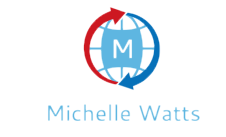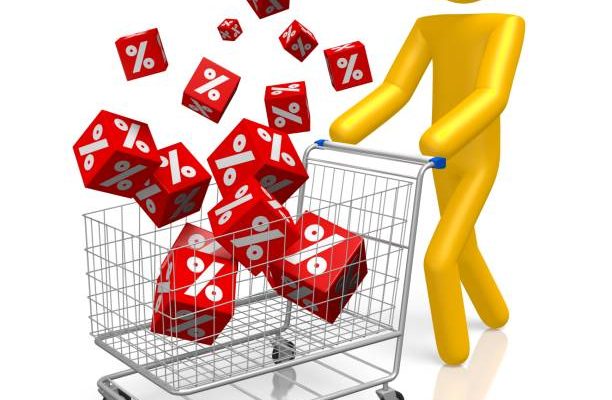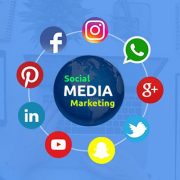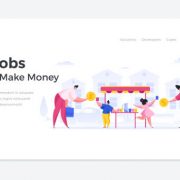I’ve seen thousands of Google Ads accounts as a Googler and Google Ads Coach for the past two years. Virtually all run branded campaigns (searches that use variations of the business name as keywords), and one in ten complains that their costs per click for brand keywords are too high.
WordStream’s recent search benchmark data indicates that the average cost per click increased in 61% of industries and that there was a 5% increase year-over-year.
Brand keywords have historically had a lower cost per click. This, combined with the fact that branded keywords convert at 100 more than non-branded terms, is why businesses are looking to get the most out of them.
You’re not alone if you think your branded keywords’ costs are high but don’t want them to stop you from using them. You can fix your high branded keyword costs this year by looking at these five common causes.
Issues causing high costs for brand keywords (and how to fix them)
This guide will help you diagnose and treat Google Ads brand keywords that are costing excessively.
Your match types are wrong.
You’re not advertising for search queries that are aligned with your brand.
You’ve just entered your brand keywords in your search campaign as follows:
Joe’s Awesome Business
Joe’s Business
This is called broad matching and tells Google you want to advertise when people search for related toJoe’s Awesome Business. This does not mean Google wants to promote your business when someone searches for it. You would have to use a phrase or an exact match.
How to tell if your match type is wrong
Click Search Keywords in Google Ads. Look at the match type and make sure that phrase match or exact matching is next to each keyword in your brand search campaign. It’s possible to leave out a bracket or quotation mark, even if you thought you had selected the correct match type. This will result in broad-match keywords.
You are not adding negatives.
You’re not only advertising your brand queries because you have the correct match types.
Google Ads has become more liberal in its definition of “close variants” over the past year. It’s so liberal that I have heard of reports where Google Ads match competitor names with brand names even when using phrase match or exact match.
Say you use the keyword “joe’s amazing business” and Sara’s Fabulous Shop, which is located down the street and sells similar products. Google may match your search for “Sara’s Fabulous Shop” with your “joe’s awesome business” even though it is clear that the two phrases are not similar.
Google’s search algorithm will recognize the similarity of these two keywords and treat them as synonyms. This will turn your branded campaign into a rival search campaign. CPCs for competitor keywords will always be high because of the low-quality score and increased competition.
What do you do if you are adding negatives?
Click on negative keywords in Google Ads to check if you have added any negatives to your brand search campaign.
You can sort by Impressions for the past 30 days or 90 days if you have a low search volume. You may have noticed something surprising. Add it as negative keywords.
Your competitors are bidding on you
You’re using the correct match types and adding negatives where necessary. Your Search Term Report is looking good, while your CPCs remain high.
Your competitors may be bidding for your brand’s keywords, which is the next most common cause. Your brand may be so generic that you are bidding with other businesses to get customers who may or may be unaware of you.
It’s legal to do this as long as your trademarks are not used in the text. You can get rid of these people by defending your brand. Make sure you have a share of impression above 90% in your branded campaign. You’ll be able to drive up the CPCs to a point where it will no longer be profitable for them to bid on your brand. Your CPCs, however, will decrease once they leave the auction.
The wrong bid strategy
CPCs can be high for a variety of reasons. You may be paying too much for brand keywords because you have chosen the wrong bidding strategy.
Google Ads Recommendations often recommend Target Impression Share. However, in my experience, this is an easy way to waste a lot of money. Maximize Clicks and Maximize Conversions are my preferred solutions for branded campaigns. However, these solutions may not work for all accounts.
If you’re having trouble controlling your CPCs, try switching to Manual CPCs and turning on enhanced CPCs. Set a Max CPC at least 25% below your current CPCs. Monitor your Search Impressions Share (especially if you have competitors in your auctions) and reduce your bids by 25% increments.
You may have a problem with your Quality Score.
The amount of money you pay for each click depends on both your bids and quality. It’s important to check your Quality Score, even though it is not as common with branded campaigns.
You may not have included your brand name in the copy of your ad. As a result, your Click-Through Rate might be lower than expected. Your ads may be fine, but the landing pages are so bad that they’re hurting your Quality Score and driving up your CPC.
If you are running a brand search campaign, the Quality Score (if it is reported) for each keyword should be 9 or 10.




















Comments